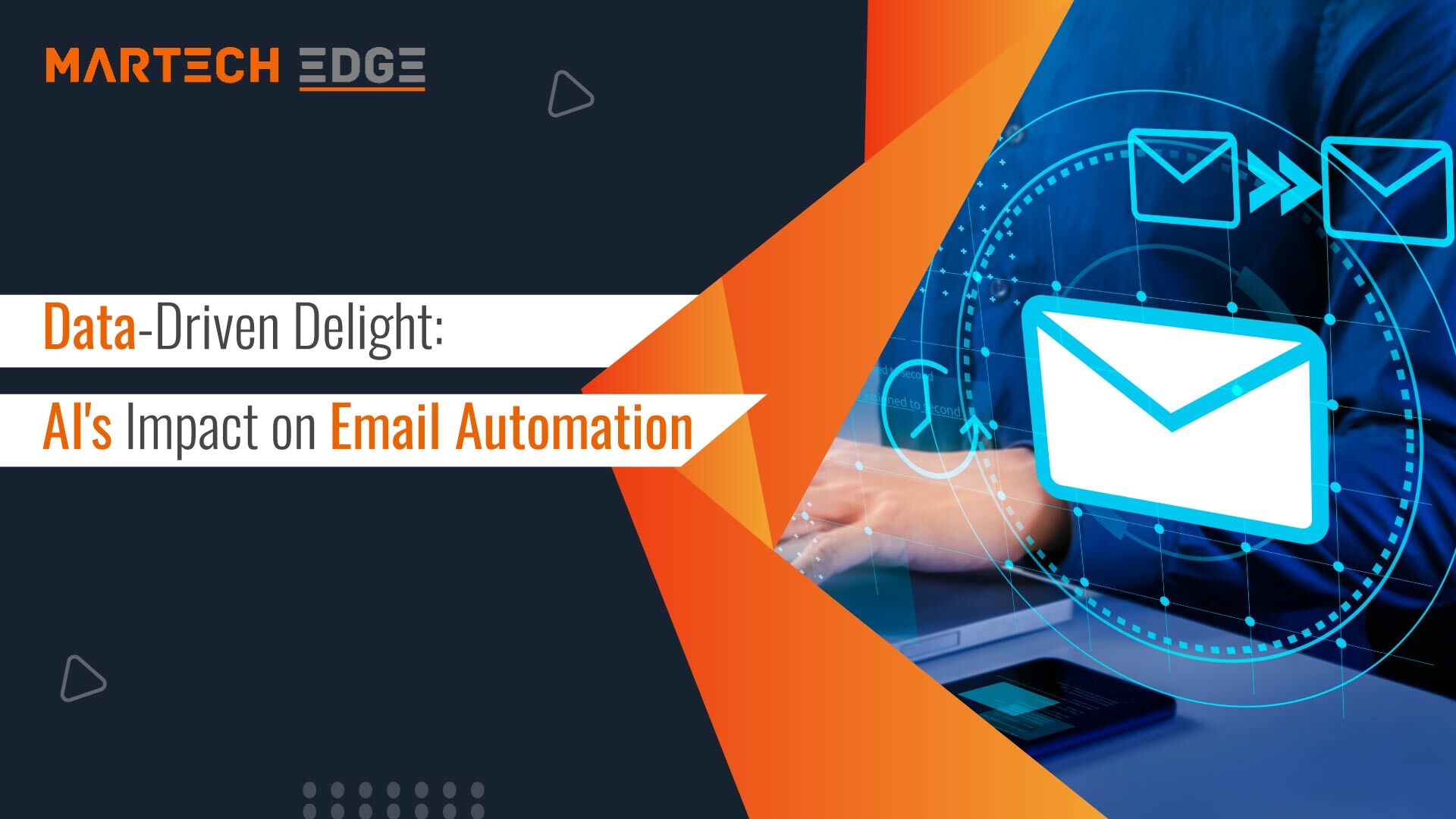
Data-Driven Delight: AI's Impact on Email Automation
Email marketing remains one of the most potent tools in a marketer's arsenal, but its effectiveness hinges on personalization, relevance, and timeliness. As consumers become increasingly discerning, generic email blasts are no longer sufficient. Enter the age of data-driven email automation, where artificial intelligence (AI) is revolutionizing how you engage with your customers.
AI has become a game-changer in email marketing by harnessing the power of data. From tailoring email content to predicting customer behavior, AI-driven email automation is efficient and delight recipients with more relevant and engaging messages.
This blog explores the fascinating intersection of data, AI, and email automation.
Predictive Analysis in Email Automation
Predictive analysis in email automation is not just about sending emails; it entails sending the right emails to the right people at the right time. It enables you to anticipate recipient behavior and tailor email campaigns for maximum impact. By leveraging historical data and advanced machine learning algorithms, predictive analysis generates insights that drive highly personalized email content and optimized delivery timing.
You can customize email content for individual recipients by drawing predictions on their past behaviors. Predictive analysis can also determine the best time to send an email to each recipient, increasing the likelihood of it being opened and read. Factors like time zone, historical open rates, and recipient behaviors are considered. You can also leverage predictive analysis to recommend products a consumer will likely purchase based on their browsing and purchase history. You can feature this content prominently in your marketing emails.
Improving Engagement and Click-through Rates (CTR)
Higher engagement indicates that your emails resonate with your audience, while a better CTR signifies that recipients are taking action. Personalized subject lines, greetings, and product recommendations grab recipients’ attention. Segmenting your email list allows you to send highly targeted content to specific groups. You can use AI to create segments where recipients receive content aligned with their interests and behaviors.
To identify recipient behaviors, you can use AI for browsing patterns and previous purchases to trigger timely emails. Abandoned cart reminders and product recommendations based on user history are instances of behavioral triggers. You can also regulate the frequency of emails to prevent over-messaging recipients. It ensures subscribers receive a manageable number of emails, reducing unsubscriptions due to email fatigue.
Deliverability & Spam Prevention
Ensuring your emails reach recipients’ inboxes, avoiding spam folders is a top priority. AI plays a role in enhancing deliverability and preventing emails from being flagged. It can analyze email content to ensure that they don't contain elements associated with spam. It includes monitoring excessive capital letters, keywords, and misleading subject lines. AI tools can monitor your sender's reputation in real time, identifying issues that could negatively impact your deliverability.
It can also help identify inactive or invalid email addresses, improving your list's quality. Further, it provides insights into significant email metrics such as email delivery rates, spam complaints, and bounce rates and helps implement authentication protocols such as SPF, DKIM, and DMARC to verify the mail.
A/B Testing & Optimization
AI-driven A/B testing and optimization take the process of A/B testing to a whole new level, allowing you to fine-tune your email campaigns for maximum effectiveness. AI can automatically generate variations of email content and subject lines, saving you time and effort. It can also adapt these variations based on recipient characteristics. Further, it can analyze A/B test results in real time, making it possible to stop underperforming campaigns and allocate more resources to winning variations. AI-driven A/B tests helps assess the impact of different personalization strategies, determining the optimal level of personalization.
Conclusion
As we look into the future, the potential of AI in email automation is boundless. By staying informed and adopting best practices, you can unlock the full potential of email automation. AI-powered email automation will continue to lead the way in engaging and connecting with your audiences. As we look ahead, the future of email marketing lies in AI advancements, promising greater levels of personalization, efficiency, and success.

email marketing artificial intelligence
Join our newsletter!
Enter your email to receive our newsletter.




